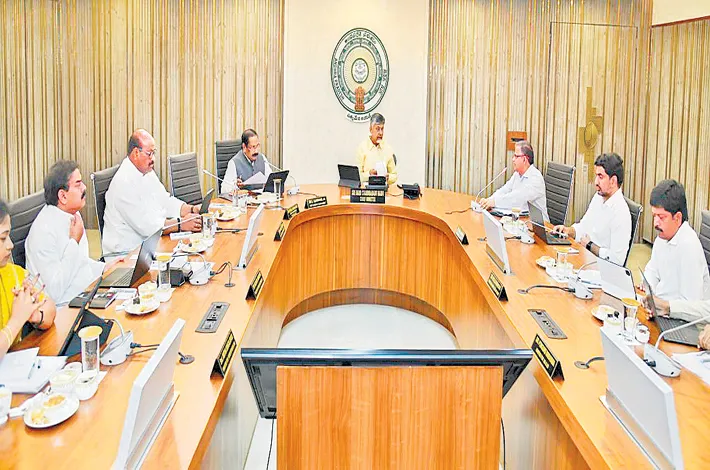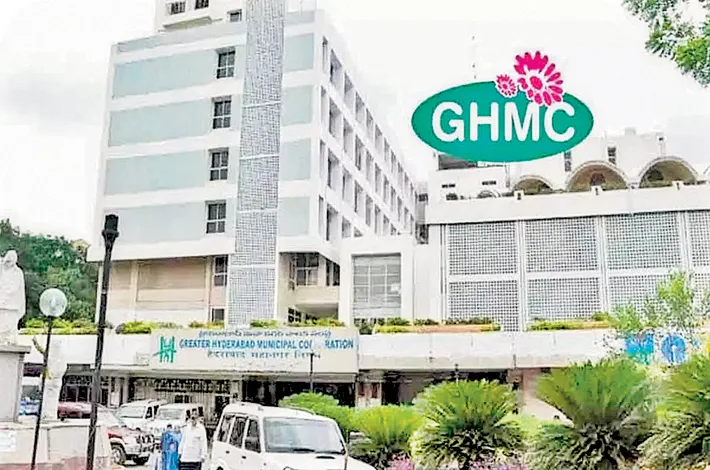10 decisions taken by AP cabinet
07-02-2025 12:05:44 AM

metro india news I hyderabad
State Minister for Information, Public Relations, and Housing, Kolusu Parthasarathy briefed the media about the decisions made during the e-Cabinet meeting on Thursday. He highlighted the state government's consistent investment growth since the NDA government came into power, with 34 projects signed, totaling investments of Rs 6,78,345 crore. This is expected to create job opportunities for 4,28,705 people.
1. Industries and Trade
The Cabinet approved amendments to policies including the AP MSME & Entrepreneurship Development Policy, AP Food Processing Policy, Andhra Pradesh Sustainable Electric Mobility Policy, and AP Textiles, Apparel & Garments Policies for the 2024-29 period. Notable changes include an increase in investment subsidies for manufacturing, transport, and logistics activities from 35% to 45%, with a cap of Rs 75 lakh.
The subsidy will be extended to new investors, and SC/ST entrepreneurs will receive up to a 75% land subsidy, with a maximum of Rs 25 lakh. Additionally, an electricity subsidy of Rs 1.50 per unit will be granted to women, SCs, STs, BCs, minorities, and differently-abled people for five years.
2. Investment Proposals
The Cabinet approved incentives for companies like Coromandel International Limited and ELIP. Coromandel will invest Rs 1,539 crore and create 750 jobs, with incentives including a 30% investment subsidy, 25% recarbonization incentive, electricity subsidies, and payroll subsidies. ELIP, which was allotted land in East Godavari, has been relocated to Anakapalli district, resulting in an investment of Rs 305 crore and the creation of 6,000 jobs.
3. Revenue (LADS)
The Cabinet approved amendments to the AP Rights Land and Pattadar Passbooks Act, 1971, transferring the power to resolve revenue disputes from MROs to RDOs. This change aims to ease access to dispute resolution.
4. Water Resources Department
The Cabinet approved the payment of Rs 50.56 crore to contractors who had not been paid for work under the Neeru Tree Programme from 2014-2019, following allegations of political misuse of vigilance cases against them. The government also made changes to bidding capacities for various projects to ensure the availability of qualified contractors.
5. Polavaram Project
The Cabinet approved fresh tenders for housing balance works in the Polavaram R&R colonies and ordered the cancellation of existing contracts to ensure timely project completion by 2027.
6. Revenue (Devadaya)
The Cabinet approved the creation of new posts for potu workers in Tirupati due to the high demand from devotees. The positions will be upgraded to Potu Supervisors to maintain quality standards in the preparation of prasadam (laddoos).
7. Revenue (Registrations-1)
A dynamic queue management system was approved to facilitate document registration through prior appointments, reducing congestion and improving efficiency.
8. Land Acquisition for Industrial Corridor
The Cabinet approved compensation to farmers in Tamminapatnam and Kothapatnam villages, in the Chennai-Bengaluru industrial corridor, with an ex-gratia payment of Rs 8 lakhs per acre, totaling Rs 78.85 crore.
9. Knowledge Society and Capacity Building
The Cabinet endorsed the Andhra Pradesh Knowledge Society and Capacity Building Policy 2025. This policy aims to develop state-of-the-art training centers in Amaravati, similar to the HRD center in Anantapur, to improve government employees' skills and prepare them for future technologies. The policy targets skill enhancement for inclusive growth and improving state governance.
10. Green Energy Policy
The Cabinet approved proposals for solar power capacity allocation, totaling 3,200 MW, which will attract investments of around Rs 5,500 crore and create 3,500 jobs. Specific projects include 400 MW allocated to Tata Power Renewable Energy in Anantapur, and 300 MW each to SAEL Solar MHP1 in Anantapur and YSR districts. Other projects include allocations to Megha Engineering for a 2,000 MW pumped storage project and Navayuga Engineering for 1,500 MW in Alluri Sitaramaraju and 800 MW in Chittamvalasa.
These measures reflect the government’s focus on boosting industrial growth, infrastructure development, energy sustainability, and job creation while enhancing the welfare of marginalized communities.








